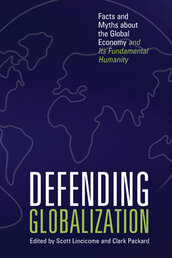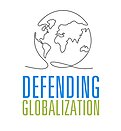The COVID-19 pandemic, war in Ukraine, simmering US-China tensions, and rising global populism have led to globalization facing renewed attention—and criticism—from politicians and pundits across the political spectrum. Like any market phenomenon, the free movement of people, things, money, and ideas across natural or political borders is imperfect and often disruptive. But it has also produced undeniable benefits—for the United States and the world—that no other system can match. And it’s been going on since the dawn of recorded history.
The original essays from both Cato Institute scholars and outside contributors compiled in this volume offer a diverse range of perspectives on globalization—what it is, what it has produced, what its alternatives are, and what people think about it—and offer a strong, proactive case for more global integration in the years ahead.
Covering the basic economic and political ideas and historical facts underlying globalization, rebutting the most common arguments against globalization today, and educating readers on the intersection of globalization and our societies and cultures—from where we live to what clothes we wear and what foods we eat—Defending Globalization will not just educate and entertain readers but also demonstrate the essential humanity of international trade and migration—and why the United States and the rest of the world need more of it.
Contributors include Deirdre N. McCloskey, James Bacchus, Johan Norberg, Daniel W. Drezner, Jeb Hensarling, Marian L. Tupy, and Tom G. Palmer.

